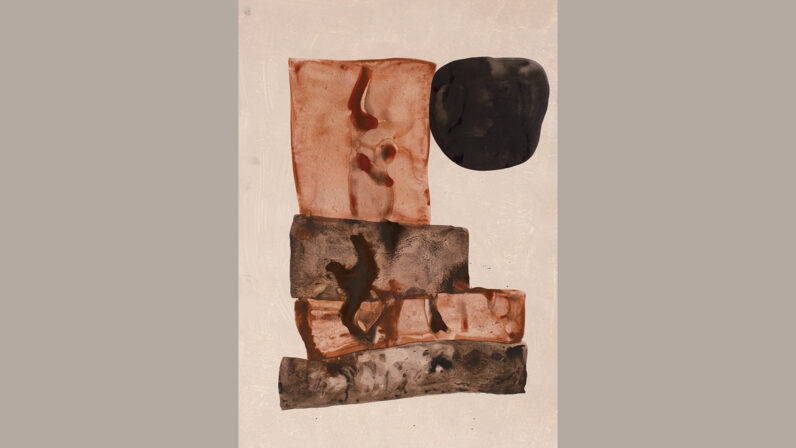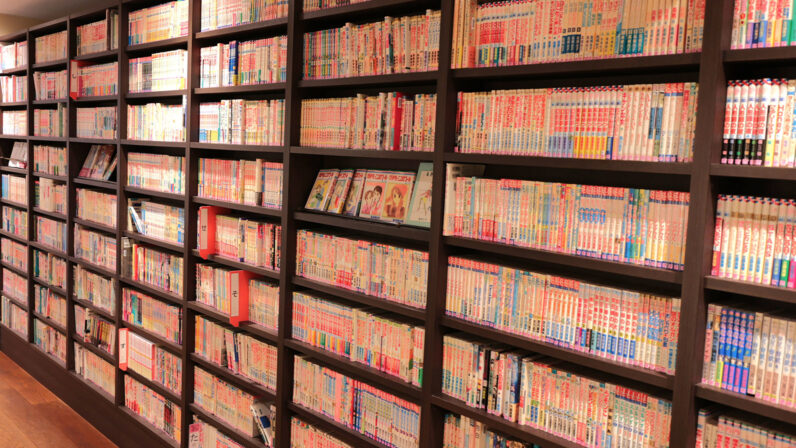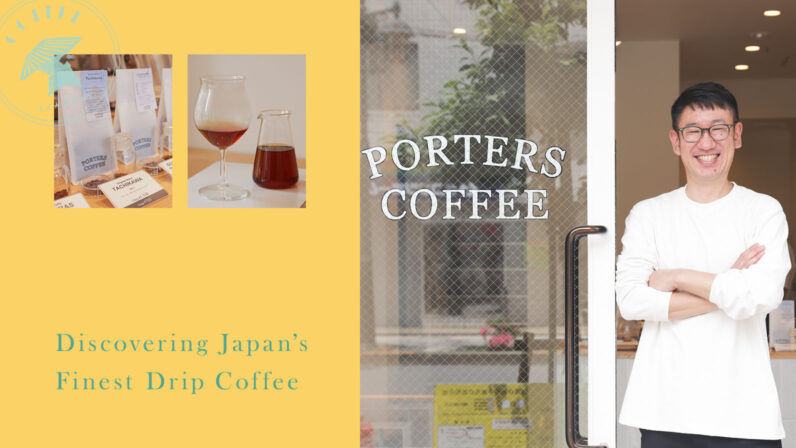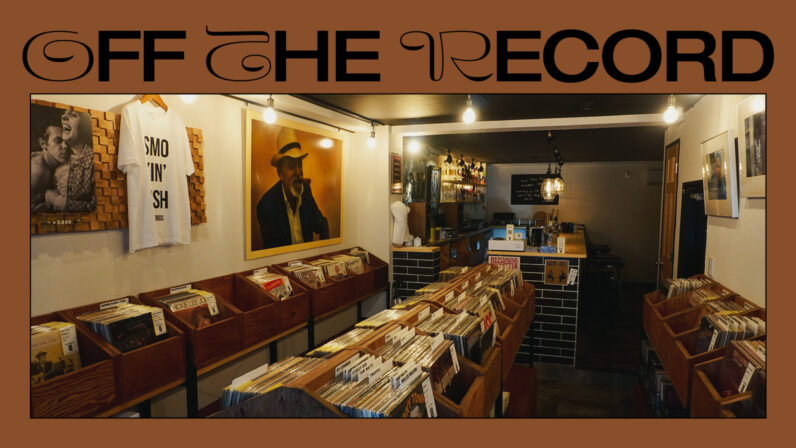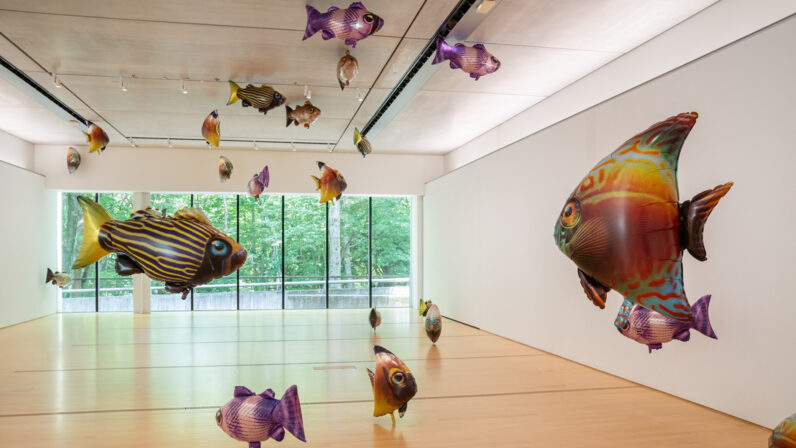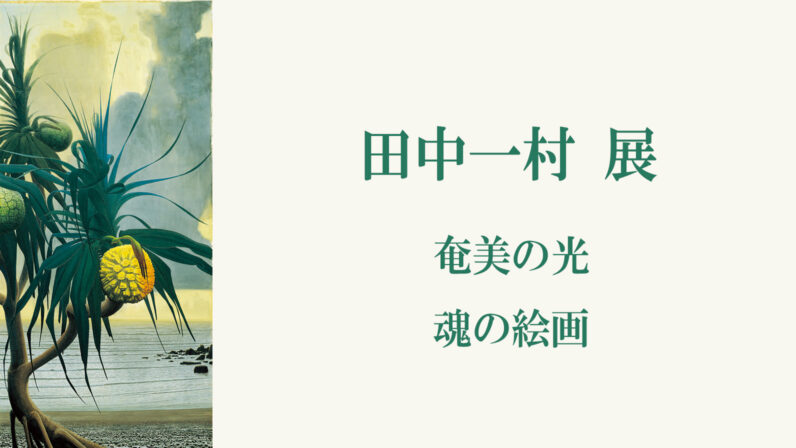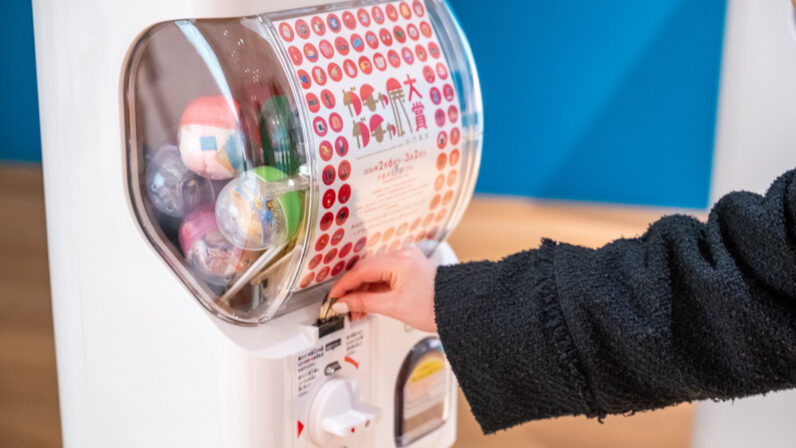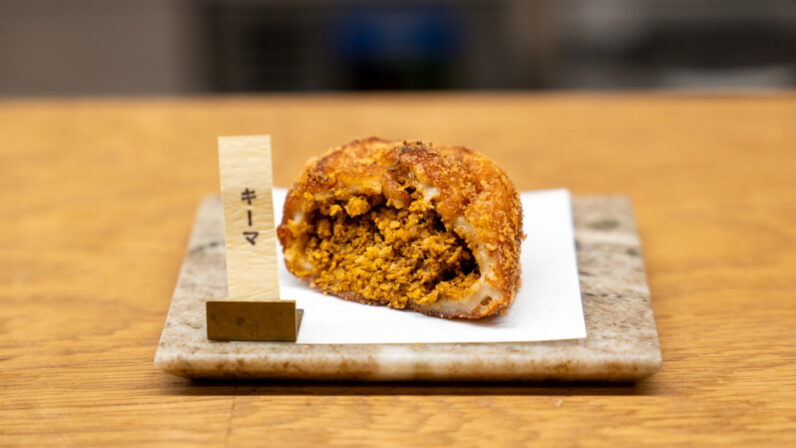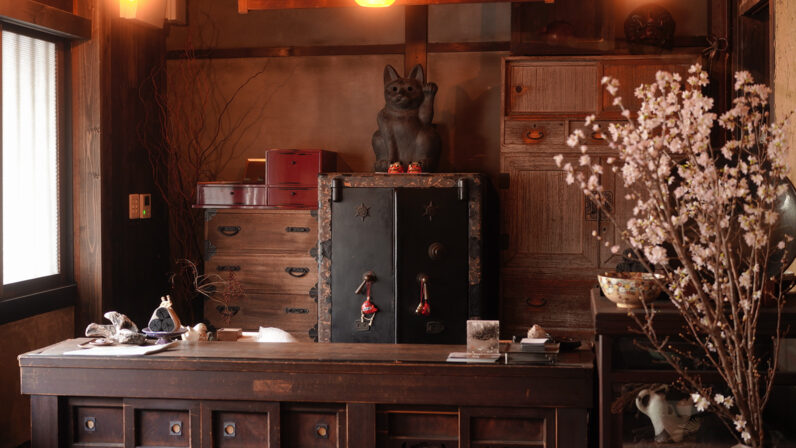Welcome to our new series【Shibuya Deep Dive】. A journey into Shibuya’s lesser known cultural hotspots, guided by DJ SHUNSUKE, who’s been spinning tracks in clubs for over 20 years. For our highly anticipated first installment, he takes us to a spot that holds a truly special place in his heart: ‘next.records‘.
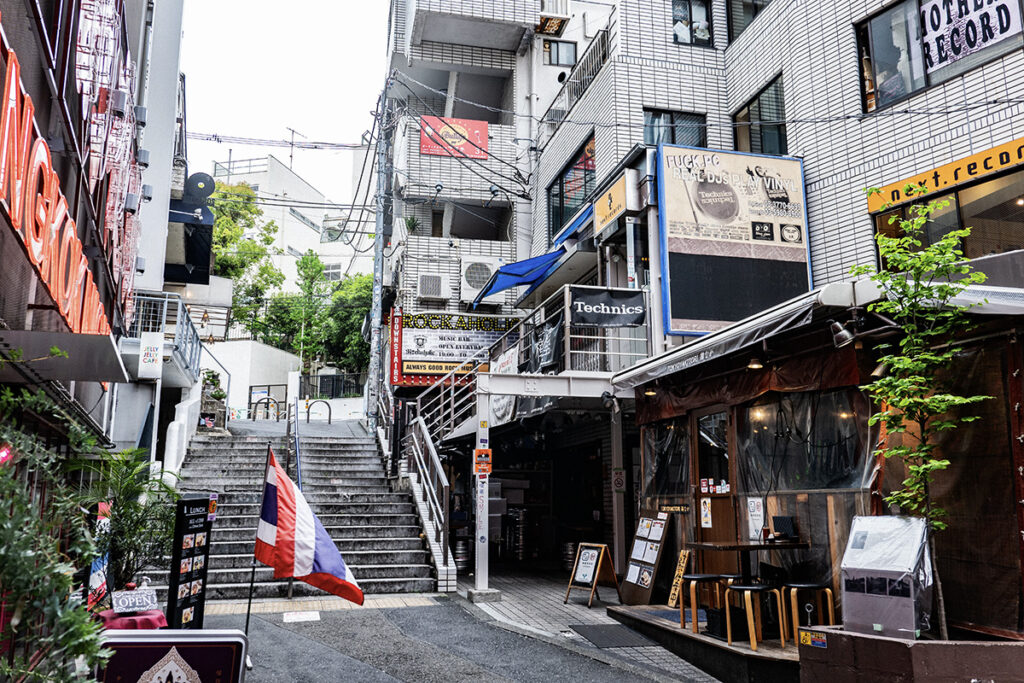
CISCO-zaka
Once hailed as the world’s top destination for record shopping, Shibuya’s Udagawacho neighborhood was packed with vinyl stores. One small street in particular, nicknamed CISCO-zaka or CISCO-hill after the legendary record shop CISCO, was lined with spots catering to DJs and collectors alike.
While most of those stores have disappeared with the shift away from physical formats, one shop on CISCO-zaka has stayed true to its roots, maintaining a fierce dedication to original 12-inch singles. That store is next.records.
Beloved by crate-digging club DJs since it first opened over two decades ago, next.records has earned a reputation as a go-to spot for serious vinyl heads. We sat down with owner Mr. Imamoto to talk about the shop’s story so far and what lies ahead.
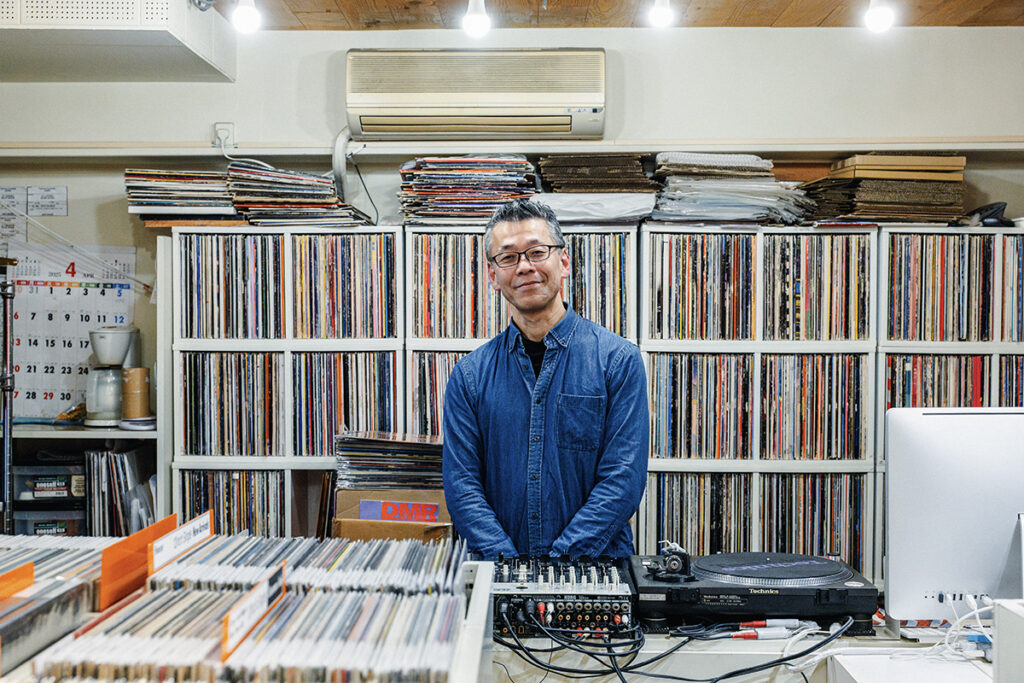
next.records owner Mr. Imamoto
SHUNSUKE:
You opened next.records around 2000, during the height of the vinyl boom. What originally inspired you to start a record store?
Imamoto:
I’d been collecting records as a hobby. There were always songs you could find on CD but not on vinyl, and I really enjoyed hunting those down one by one. One day, a friend’s older brother said, “I’m heading overseas to dig for records, want to come along?” I went with him, and when I got there, I was blown away. There were so many records you’d never come across in Japan. After that, I started going on regular buying trips abroad.
SHUNSUKE:
So how did that eventually turn into a business?
Imamoto:
That same friend’s brother opened a record store in Osaka, and my current business partner who now runs next.records together with me, took charge of the shop. At first, sales were slow, but customers from Tokyo started coming in and buying up huge stacks of records. That’s when they approached me and said, “We should try mail order. Can you help us with that?”
At the time, I was working in advertising and design, so I put together a catalog and took charge of the mail-order side. That was around ’96.
Not long after, my now-business partner, who was running a record shop in Shibuya called Boon Coon Records, asked if I could help with the overseas buying since he was too busy to travel. The timing worked out, so I moved to Tokyo. After talking things over, we decided to close Boon Coon and open next.records together.
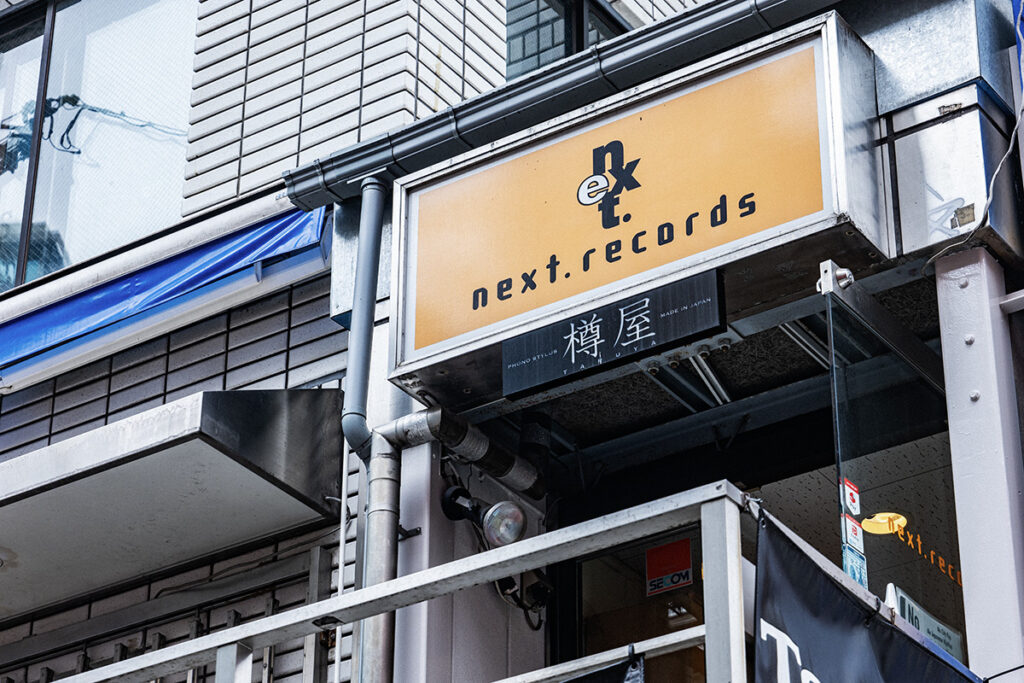
SHUNSUKE:
Was the place you rented back then the old store location in Udagawacho?
Imamoto:
Yes, that’s right. Finding the right spot was really tough. At the time, Boon Coon Records was on Koen-dori, but when it comes to records, Udagawacho is the real epicenter. So I was determined to open next.records there. But whenever a space opened up, it would get snapped up immediately by big companies, so it was hard to find the right opportunity.
SHUNSUKE:
So how did you finally manage to get your current location?
Imamoto:
By luck, we got into an apartment where the previous record shop had been, and we were able to take over their interior as it was. That finally let us open in the ideal spot. After we opened, my partner took charge of most of the buying trips. I’d go sometimes, but his schedule was crazy. He would spend two weeks straight overseas buying, then come back home only to leave again soon after. Honestly, I was worried about how he was holding up physically.
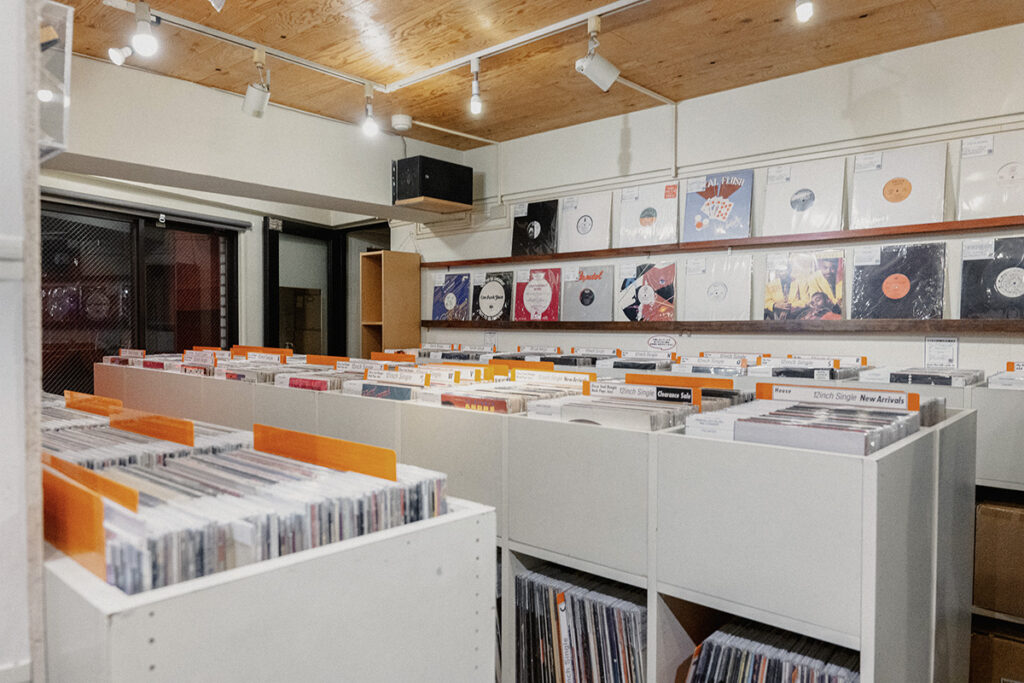
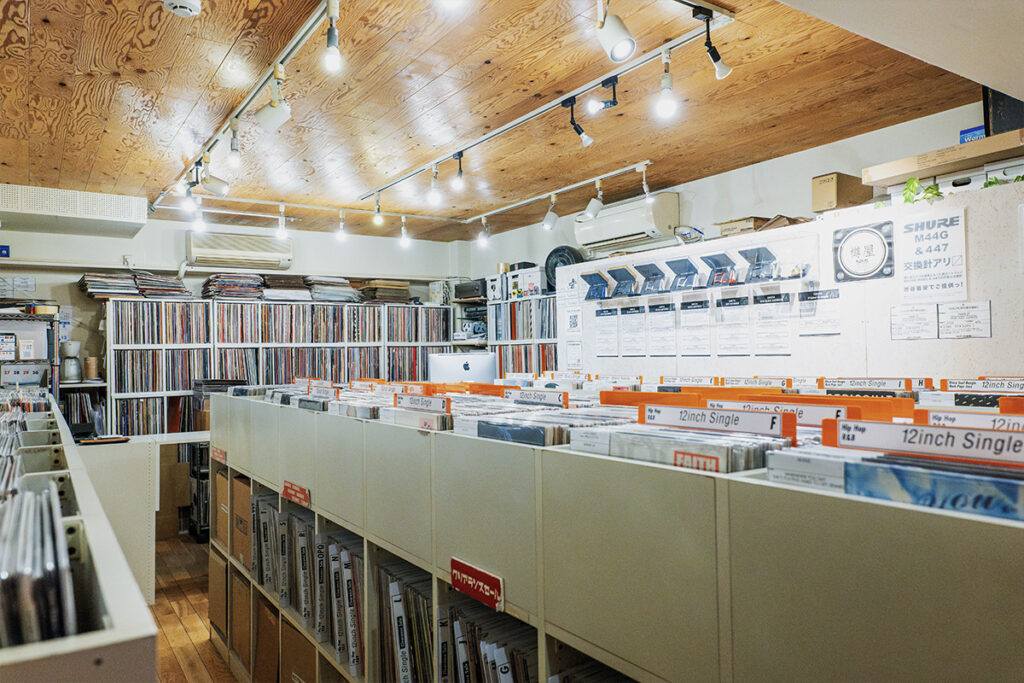
The Appeal of 12-Inch Singles
SHUNSUKE:
You’re known for focusing on 12-inch singles. What draws you to that format?
Imamoto:
At first, I just bought regular albums, but not every track was great. Then I started paying attention to singles and realized they often had unique versions you wouldn’t find on albums. That’s when I thought, “This is something special.”
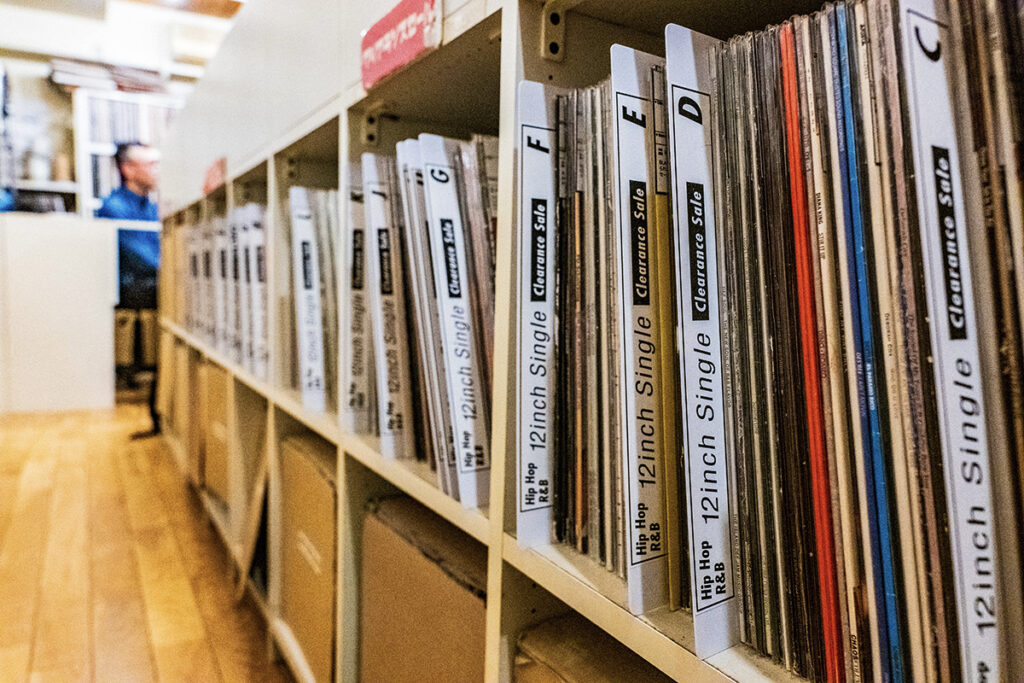
12-inch singles are especially appealing because of their unique edits. Plus, once they sell out, they’re often never repressed, which really excites collectors.
SHUNSUKE:
You were selling a lot of 12-inch singles from the US, but next.records also distinctly had UK pressings too?
Imamoto:
I was. I did a lot of digging in Europe too. Back then, UK records didn’t make their way to Japan very often, but over there, you could find rare versions easily and at low prices. Having access to that kind of stock really became a strength of the shop.
SHUNSUKE:
You carry a pretty wide range of genres, right?
Imamoto:
The genre isn’t so important to me. The only thing I care about is whether a 12-inch single exists. That’s the main filter. We carry everything from hip-hop to U2, Prince, house, techno, and jazz, but if there’s no 12-inch single, I’ll usually pass on it.
SHUNSUKE:
So it’s not that you love music in general. You’re specifically into 12-inch singles?
Imamoto:
Exactly. People sometimes say, “You must really love music,” but honestly, not so much. Even if it’s a great song, if there’s no 12-inch, I lose interest pretty quickly. I’m not really into albums or live shows either. In the end, what I love isn’t music itself, it’s the 12-inch single.
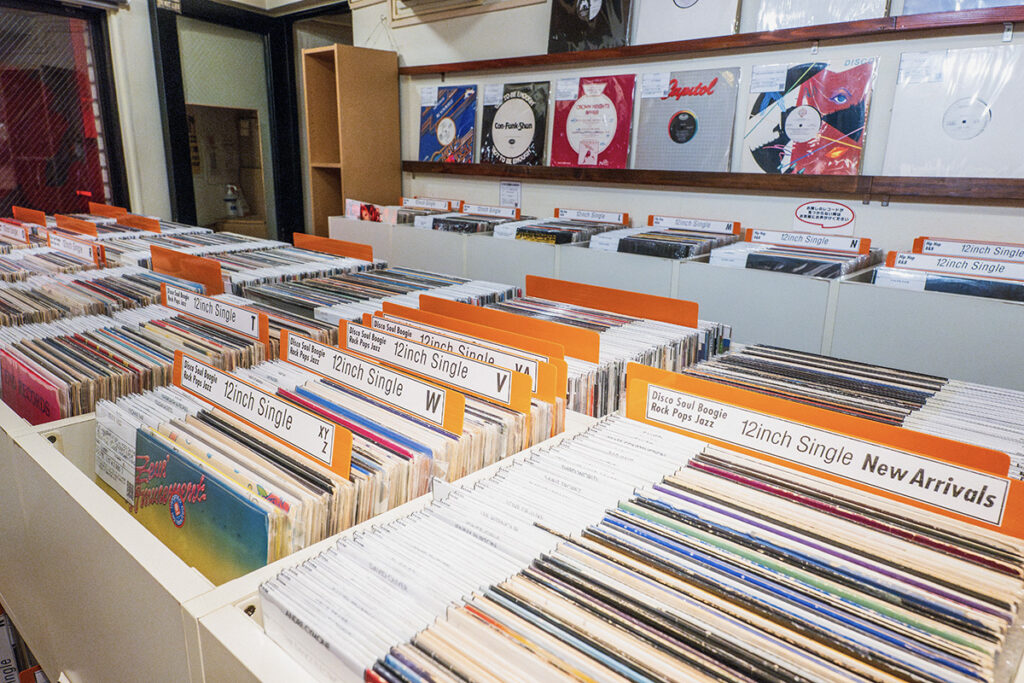
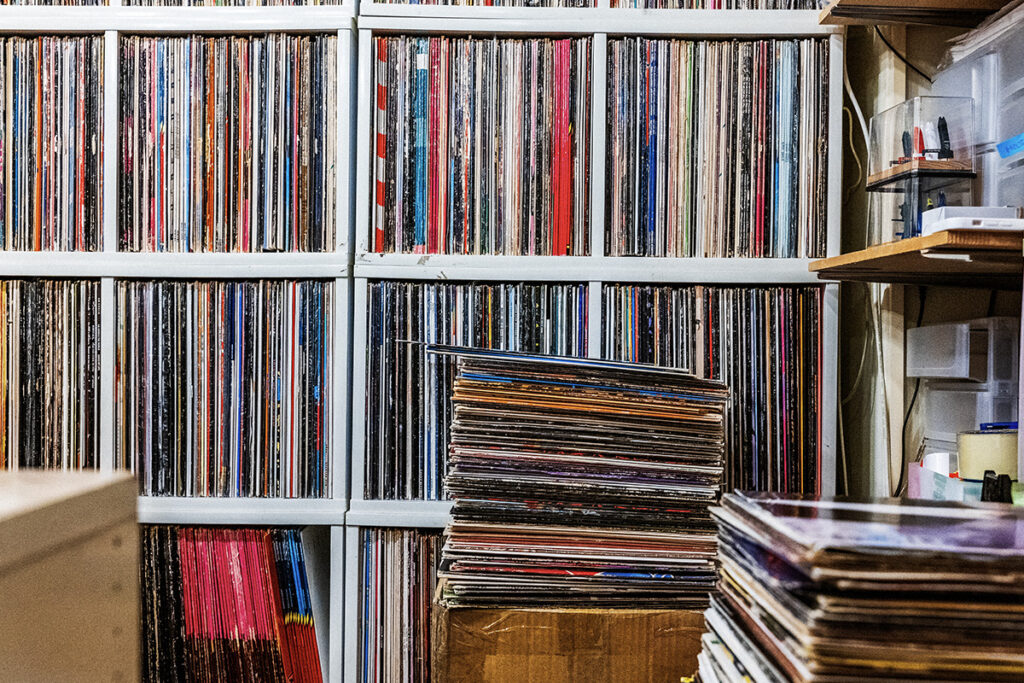
Shifting Trends in the Market
SHUNSUKE:
What do you think about the recent resurgence in vinyl?
Imamoto:
The media has definitely played a big role. A lot of people who were into records back in the day are coming back to them now, often after raising kids or taking a break. Those folks already have their own way of listening to music, so it’s easy to connect with them. On the other hand, people who are just getting into vinyl for the first time often approach it through trends, so their selection process can feel a bit superficial.
SHUNSUKE:
Like sticking to just the classic hits.
Imamoto:
Exactly. It’s a shame when people stop at the obvious tracks. If you dig a little deeper, there’s so much good music out there. Back in the day, finding tracks you’d never heard of was part of the fun. And when someone would hear something rare and say, “Whoa, what is this? It’s so good,” that feeling was unbeatable. It still makes me really happy when I can have that kind of exchange. That’s what I want to keep doing, sharing the deeper side of music in a way only a record shop can.
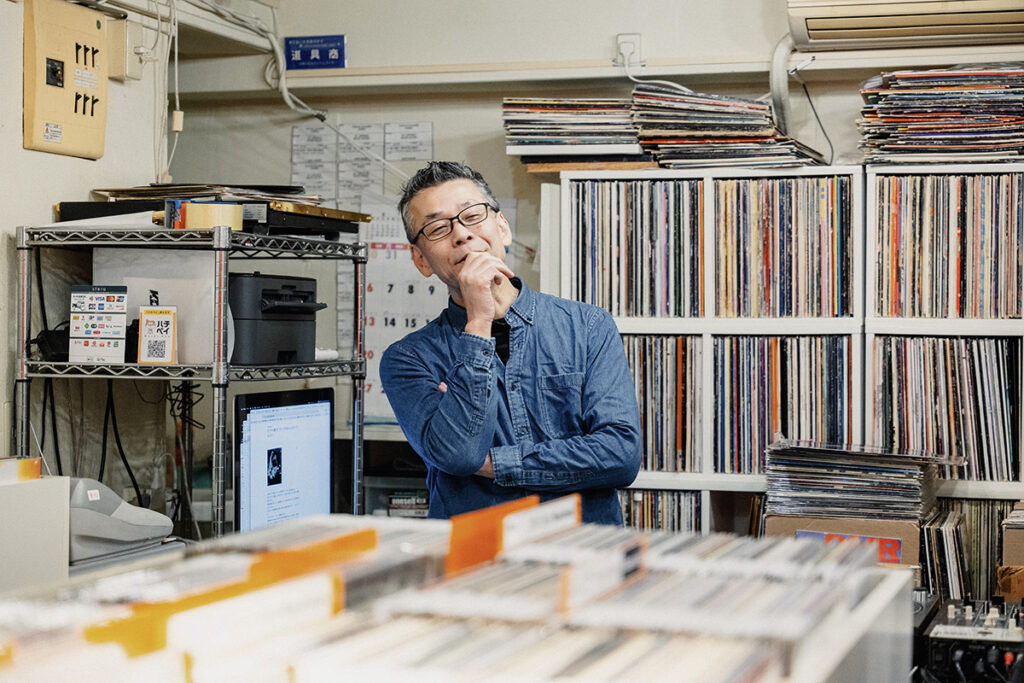
The Future of next.records
SHUNSUKE:
What are your plans for next.records moving forward?
Imamoto:
We’ve managed to keep the physical store going with some creative effort, but lately about 90% of our customers are from overseas. Some even come all the way here specifically looking for us. That said, our overseas mail-order sales are still pretty weak, and that’s something we want to improve. Sure, you can buy records internationally through sites like eBay and Discogs, but it’s hard for people to realize they’re actually buying from next.records. We want customers to clearly know they’re getting their records straight from us. So instead of relying on those platforms, we want to handle shipping ourselves and make sure we deliver genuine 12-inch singles directly.
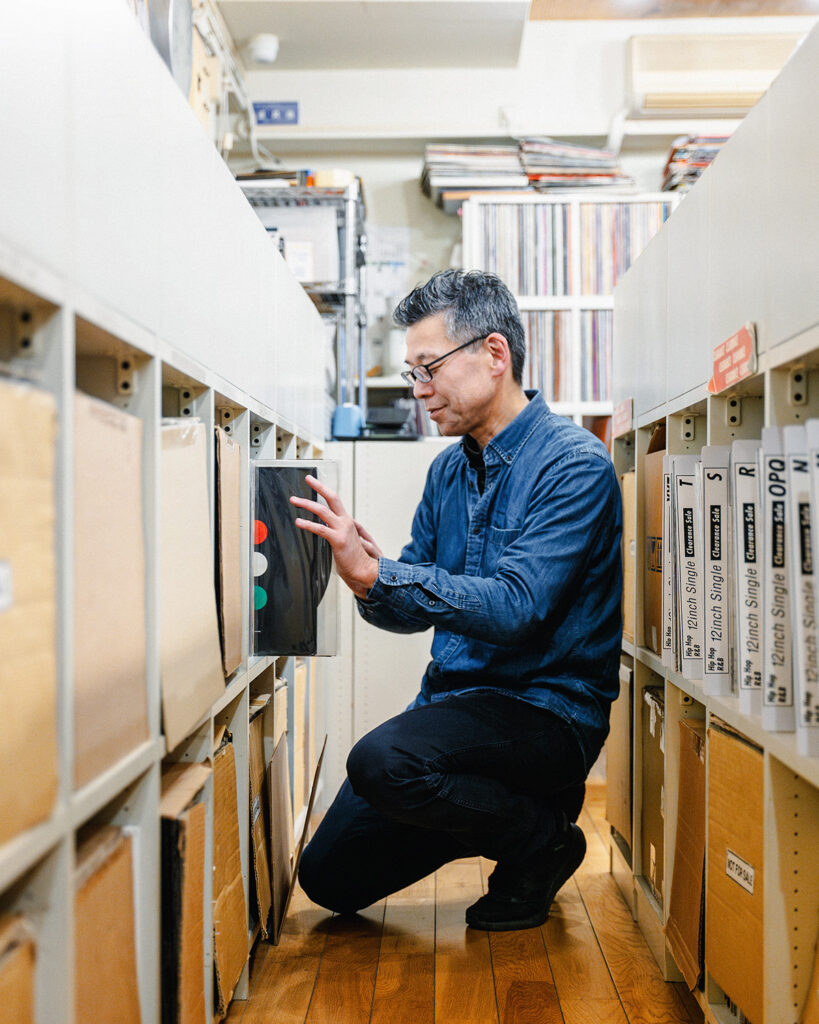
SHUNSUKE:
So there’s demand for 12-inch records even overseas?
Imamoto:
Absolutely. Recently, more people have been coming from places like Australia and across Asia. I think Japanese used records are getting noticed for their quality and variety. Plus, big-name DJs like Danny Krivit and Dimitri from Paris still come by looking for records. I was so ecstatic when I found out they knew about next.records, and they still come by often when they’re in Japan. Moving forward, I want to connect more with those customers who come specifically because it is next.records.
SHUNSUKE:
What would you say to people who are just starting to get into vinyl?
Imamoto:
Most people think of records as albums, but I really encourage them to check out 12-inch singles of their favorite songs. They often have remixes, instrumentals, or dub versions that show how different one track can be. Instead of thinking I already have the album, so I am good, try stepping outside that mindset. It opens up a whole new world. The sound is different, and the experience is totally unique. So if you are even a little curious, I definitely recommend picking one up and giving it a listen.
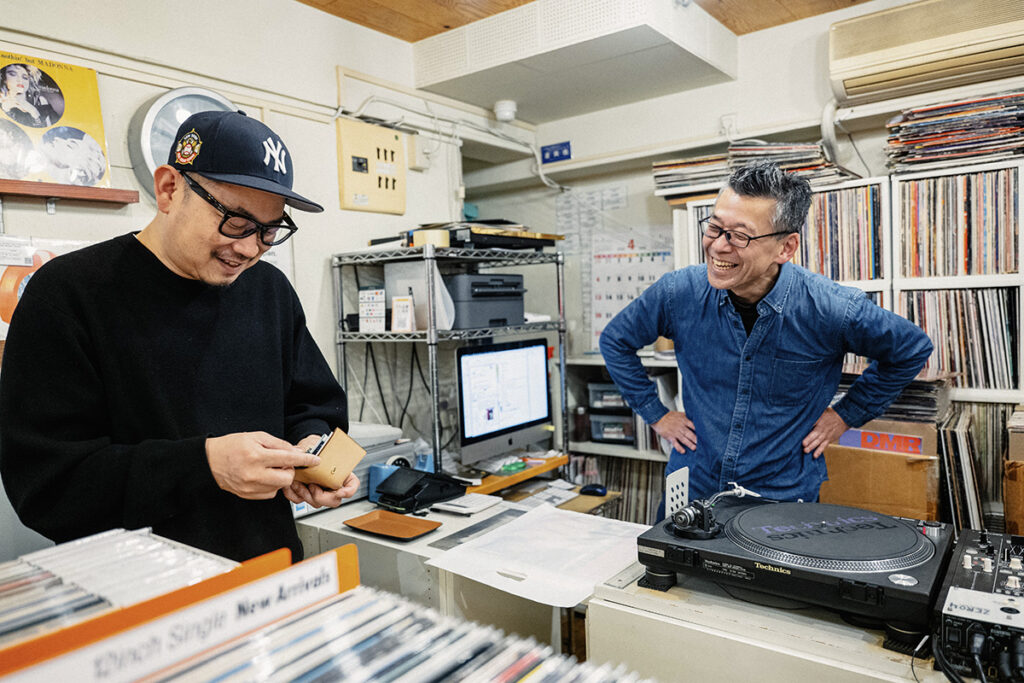
After chatting with Imamoto, DJ SHUNSUKE can’t resist and ends up buying some records.
next.records
2F, Ryuko Building Main, 11-11 Udagawacho, Shibuya-ku, Tokyo 150-0042
TEL: 03-5428-3501
Business hours: 1:00 PM – 8:00 PM
Website: https://nextrecordsjapan.net/ja
Instagram: @next_kj


